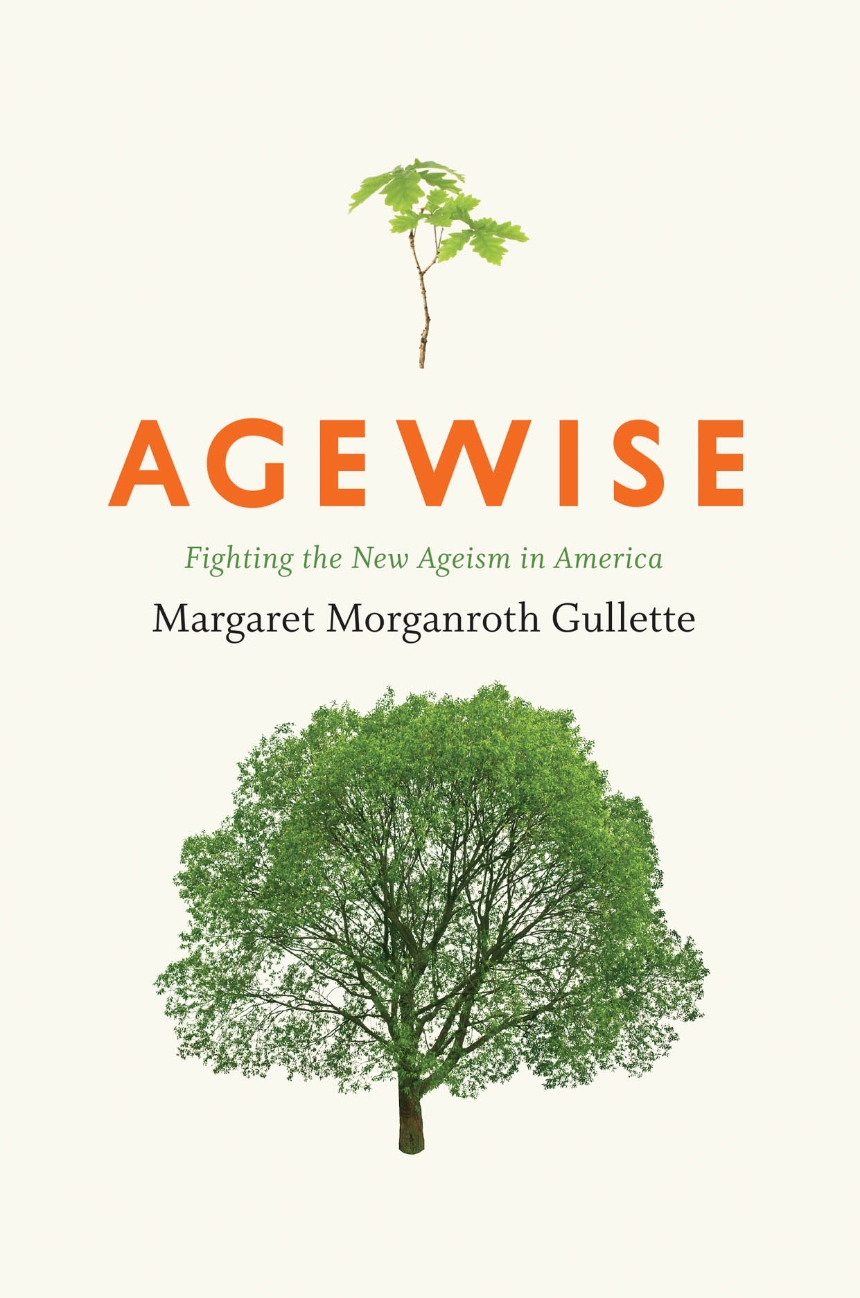Agewise
Fighting the New Ageism in America
Let’s face it: almost everyone fears growing older. We worry about losing our looks, our health, our jobs, our self-esteem—and being supplanted in work and love by younger people. It feels like the natural, inevitable consequence of the passing years, But what if it’s not? What if nearly everything that we think of as the “natural” process of aging is anything but?
In Agewise, renowned cultural critic Margaret Morganroth Gullette reveals that much of what we dread about aging is actually the result of ageism—which we can, and should, battle as strongly as we do racism, sexism, and other forms of bigotry. Drawing on provocative and under-reported evidence from biomedicine, literature, economics, and personal stories, Gullette probes the ageism thatdrives discontent with our bodies, our selves, and our accomplishments—and makes us easy prey for marketers who want to sell us an illusory vision of youthful perfection. Even worse, rampant ageism causes society to discount, and at times completely discard, the wisdom and experience acquired by people over the course of adulthood. The costs—both collective and personal—of this culture of decline are almost incalculable, diminishing our workforce, robbing younger people of hope for a decent later life, and eroding the satisfactions and sense of productivity that should animate our later years.
Once we open our eyes to the pervasiveness of ageism, however, we can begin to fight it—and Gullette lays out ambitious plans for the whole life course, from teaching children anti-ageism to fortifying the social safety nets, and thus finally making possible the real pleasures and opportunities promised by the new longevity. A bracing, controversial call to arms, Agewise will surprise, enlighten, and, perhaps most important, bring hope to readers of all ages.
304 pages | 2 halftones | 6 x 9 | © 2011
Anthropology: Cultural and Social Anthropology
Psychology: Developmental Psychology
Sociology: Social Gerontology
Reviews
Table of Contents
Introduction: The New Regimes of Decline
A Historical Tsunami
part one: the hidden coercions of ageism
1 The Eskimo on the Ice Floe
Is It Aging or Ageism That Causes the Pain?
2 The Mystery of Carolyn Heilbrun’s Suicide
Fear of Aging, Ageism, and the “Duty to Die”
3 The Oldest Have Borne Most
Katrina and the Politics of Later Life
part two: in the feminist country of later life
4 Hormone Nostalgia
Estrogen, Not Menopause, Is the Public Health Menace
5 Plastic Wrap
Turning against Cosmetic Surgery
6 Improving Sexuality across the Life Course
Why Sex for Women Is Likely to Get Better with Age
part three: our best and longest-running story
7 Our Best and Longest-Running Story
Why Is Telling Progress Narrative So Necessary, and So Difficult?
8 The Daughters’ Club
Does Emma Woodhouse’s Father Suffer from “Dementia”?
9 Overcoming the Terror of Forgetfulness
Why America’s Escalating Dread of Memory Loss Is Dangerous to
Our Human Relations, Our Mental Health, and Public Policy
10 Elegies and Romances of Later Life
Are There Better Ways to Tell Our Saddest Later-Life Stories?
Afterword: The Next Angels in America
Acknowledgments
Notes
Bibliography
IndexAwards
Hopewell Publications LLC: Eric Hoffer Award
Shortlist
Hopewell Publications LLC: Eric Hoffer Book Award - Health Category
Won
